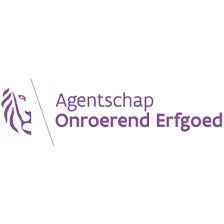We work on more than 300 projects every year.

Caring for immovable heritage: time for a paradigm shift
Cathy Cardon
The challenge
Although the social context has evolved considerably over the past 50 years, and with it the international view of immovable heritage and its preservation, Flemish support instruments have not (yet) evolved accordingly. The current approach cannot provide sufficient answers to the questions raised by the many heritage caretakers, and the current way of working leads to frustration among many stakeholders. Adjusting the details of instruments will not solve this problem – a more fundamental redesign and recalibration is needed for this purpose: a new ‘rationale’ or philosophy that forms the basis for the development of better adapted support and financing instruments that better respond to current challenges.
The process & results
To arrive at this new rationale, IDEA Consult started the research ‘outside in’: we first looked at the evolution in international charters and visions, and how heritage preservation is approached in the Netherlands, Scotland, Sweden and Denmark. An important international evolution includes an integral, social vision of the place of immovable heritage in the environment and in society. In addition, there is the realisation that immovable heritage is not only about ‘bricks’ but also about multilayered stories, emotions and meanings that connect people and communities to places. This broader, social perspective may encourage more people to take better care of immovable heritage together: heritage can also provide solutions to other social issues. From there, a shared interest may emerge that can lead to new solutions.
In the second research phase, we looked ‘inside out’ at the research question, through a series of stakeholder sessions and interviews with various types of ‘heritage caretakers’: private owners, entrepreneurs, local authorities, heritage associations, VVSG, … This showed that these ideas are also present in Flanders and are often already being applied. But the current heritage policy and instruments do not respond to this and offer few handles to preserve heritage ‘together’: from different types of heritage caretakers, from different policy domains, from different care motives.
To achieve better adapted and more effective support and funding, the research report proposes a paradigm shift on four levels:
- The evolution from an ‘object-oriented’ heritage vision to a socially and spatially embedded heritage vision;
- The evolution from a top-down organisation with the Flanders Heritage Agency as guardian, to a network model with the Agency as beacon, coach and co-creative partner;
- A broadening from mainly ‘materially’ oriented strategies starting from external motivation (stick and carrot policy) to strategies that respond to various heritage care motivations and thresholds, starting from internal motivation and collective ambition;
- An evolution from support instruments with a ‘one size fits all’ approach, offering freedom but no grip, towards differentiated instruments in terms of sensitisation, support, financing and regulation, set up from the strengthening of shared ambitions, co-creation and cofinancing.
The question of a new rationale for heritage care is a challenging one, which we have answered in this study with an argumentation and tools for an ambitious change in heritage care policy. This study has shown that in Flanders a lot is happening below the waterline, and that the time is ripe to introduce the broad social vision of heritage care into policy measures here too. To this end, a lot of inspiration can be found in foreign heritage care practices, which, however, are often themselves in search. Knowledge exchange and partnerships between various social actors, both in Flanders and with foreign partners, offer opportunities to put heritage care policy on a different footing. Ultimately, this different approach should contribute to increasing the speed, quality and scope of care provided to heritage. This way, heritage can be and remain significant not only for today’s society, but also for generations to come.
The research report has been published on the Flanders Heritage Agency’s website.

